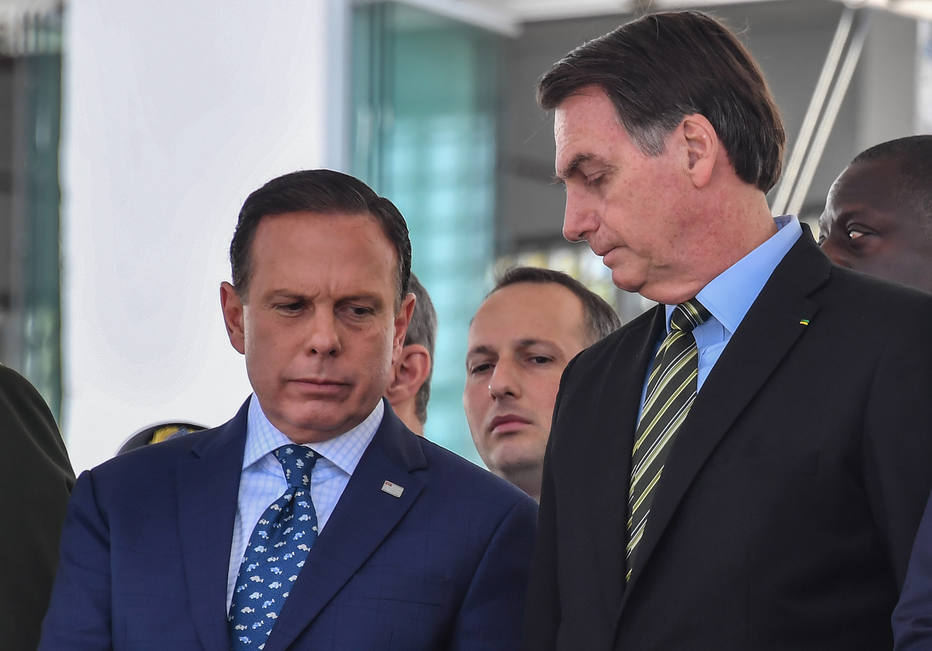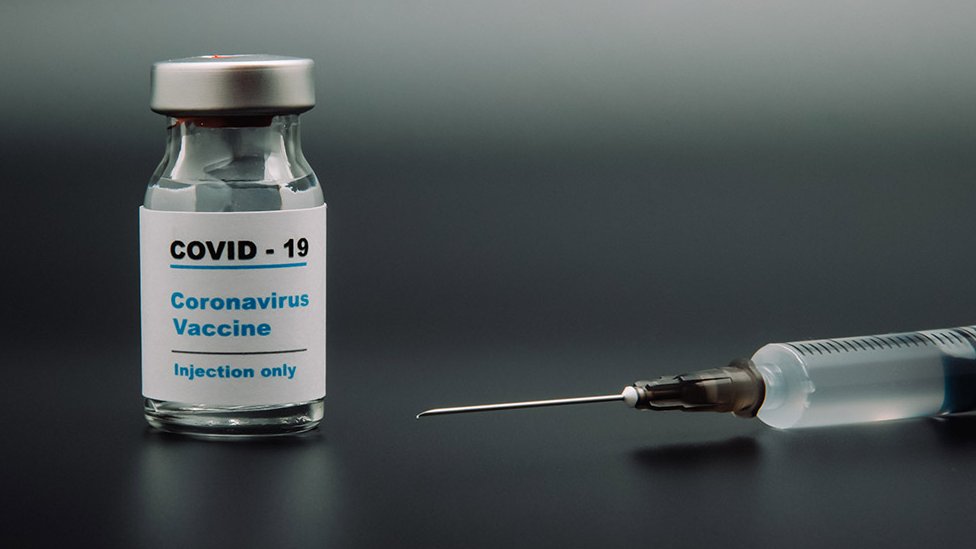RIO DE JANEIRO, BRAZIL – The tug-of-war between President Jair Bolsonaro and São Paulo Governor João Doria over the purchase of the Coronavac by the Ministry of Health saw a new chapter on Wednesday, October 21st when the federal government reversed its decision to purchase 46 million doses of the Coronavac vaccine for national distribution.
With the clash, the vaccination scenario in Brazil is becoming even more uncertain than before, experts say.
They claim that the politicization of a new chapter of the pandemic not only confuses the population but is also premature and counterproductive.

“This political dispute has greatly disturbed people’s confidence in the vaccine and in institutions,” says Natália Pasternak, Ph.D. in Microbiology and president of the Institute for Science Issues. “Rather than insisting in this childish dispute to see who has the best vaccine, they should engage with society to ensure that when the vaccine is ready and available, there will be a sound vaccination campaign.”
Although the governor says that immunization in the State of São Paulo should begin in December this year, Natalia explains that it is still early to say if this vaccine (or any other) is effective. “What he received is an interim safety analysis, which indeed pointed out that it is safe. But its efficacy is still being tested,” she notes. The data on the vaccine’s efficacy should be released by the end of the year.
“We are still in the trial phase, which requires careful assessments; from there, the results will need to be disclosed to the scientific community, the need for evaluation and approval by the ANVISA (National Health Regulatory Agency), defining a planning, purchase, and distribution of the vaccine,” says Leonardo Weissmann, infectologist physician at the Emílio Ribas Institute and consultant of the Brazilian Society of Infectology. “I believe that, in the best-case scenario, we can think about vaccination of Brazilians from mid-2021.”
Even if the Coronavac proves its efficacy, together with the agreement already signed for Sinovac to supply 46 million doses of the vaccine to the Butantan Institute still this year, national immunization will be a challenge unless there is support from the federal government.
“The lack of the Ministry of Health’s structure supporting a national immunization campaign is a disaster situation, it also allows legal measures to be taken,” says Walter Cintra Ferreira, a doctor and professor of health management at FGV (Getúlio Vargas Foundation). The Rede Sustentabilidade (Sustainability Network party) filed a suit on Wednesday, October 21st, at Brazil’s Federal Supreme Court (STF) to compel Bolsonaro to sign a letter of intent for the purchase of doses of the Coronavac.
Article 7 of Law 8,080 (1990), which regulates health actions and services at the national level, establishes principles such as universality, integrality and equal access to services of the Brazilian National Health System (SUS) by the population, in addition to “using epidemiology to establish priorities, allocate resources and provide program guidance.”
Furthermore, Article 15 states that to meet collective, urgent and transitory needs, resulting from situations of imminent danger such as the outbreak of epidemics, “the relevant authority of the corresponding administrative sphere may requisition goods and services, both from individuals and corporations, and ensure them fair compensation.”
“The federal government may perform epidemiological and sanitary regulatory actions under special circumstances, such as the occurrence of unusual health-related diseases, that may escape the control of the state administration of the National Health System (SUS) or represent a risk of national spread,” states the PSOL complaint.
One of the solutions planned and already announced by Doria would be a kind of consortium of governors interested in the vaccine and willing to negotiate directly with the São Paulo government for the purchase of doses, since the Coronavac is in the most advanced stage of testing so far. “The option certainly exists, if there is political will in the interest of the public.”
The governors have already done this through the CONASS (National Council of Health Secretariats) and in the monitoring of Covid cases when the federal government began to fail in its role of monitoring the pandemic. Now this degree of disintegration between governments is lamentable,” FGV’s Ferreira says.
Bolsonaro’s reluctance in confirming the financial support for the production of the Coronavac is contrary to the contract signed with the AstraZeneca laboratory for the purchase of 100 million doses of the vaccine developed by the pharmaceutical company in partnership with Oxford University. However, both are in their trial phase and have not had their efficacy confirmed by ANVISA.
“Both the vaccine produced by Sinovac and the one produced by AstraZeneca are in phase 3 trials (the most advanced in the development of immunizers, with human trials). Moreover, neither has been approved by ANVISA”, notes Weissmann. “The National Health System provides that it is the government’s duty to provide equal health care for all, in all spheres. This differentiation may lead to the breach of the principle of equity.”
“It is astonishing that the President will determine in advance that he will not buy this or that vaccine. What are the limits of the federal government in terms of absurdity?” asks Ferreira. Natália also points out that, contrary to what the President said, Brazilians are not being “guinea pigs” for tests, since the testing process in the population, in all cases, is international, standard practice and done on a voluntary basis.
“We have four vaccines being tested in Brazil and the whole world is experiencing this. There is no other way to test,” she explains. “These volunteers will be monitored for years to report adverse effects and compare with other results. It’s always been that way, it only reflects the President’s complete ignorance of the process.”

Too early to think about enforceability
Another mistake made by both parties and pointed out by the experts is the potential compulsory nature of vaccinations. While Doria says it will be a reality in his state, Bolsonaro rebuts saying that vaccination will be optional. The discussion, however, is still premature.
“This discussion about enforceability is utterly inopportune and irrelevant. We should not discuss a vaccine that has not been approved. We still need to produce doses, train professionals, conduct vaccination campaigns and lead the population to the SUS,” assesses Natalia, who sees in the topic a way to raise the mistrust of the public in the scientific process. “The country has always been in favor of vaccines and saw it as a right rather than a duty.”
“It is the authorities’ duty to promote the population’s awareness regarding the vaccines’ efficacy and safety, not to fight to see who is compelling and who is not,” notes Weissman. “Taking the vaccine is a decision in which the individual should not think only of him or herself, but of the collective.”
According to Natalia, the discussion should be reopened only if there are issues of adherence to vaccination when it is proven to be effective and available in the SUS. “If we still have a confused and frightened part of the population, then we could discuss enforceability. But this is not the case of a health official breaking into people’s homes with a needle in his hand. It’s by imposing restrictions on civil life.”
Source: Estadão Conteúdo

